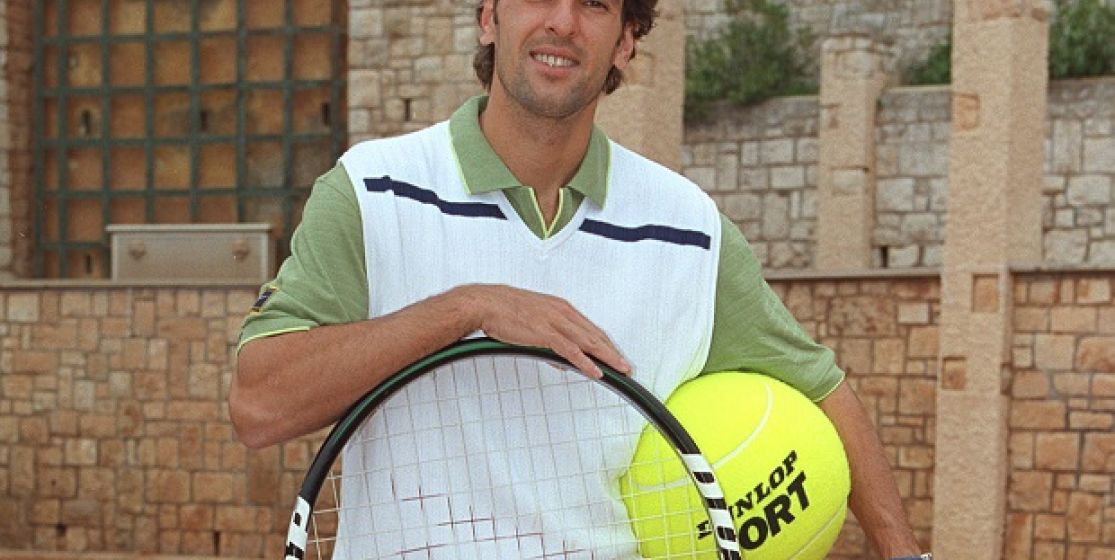In April 2000, Cédric Pioline, who was already thirty years old, had never won a Masters before his triumph in Monte-Carlo. A deserved success which represents the most prestigious title of a career which was mainly filled with disappointments.
First, there was 1993 and this defeat against Sergi Bruguera (7-6, 6-0) as he was the first Frenchman to reach this final since Yannick Noah. Then came 1999, and this large defeat against Carlos Moya (6-3, 6-0, 7-5). The script was written in advance, and bad things always come in threes : Cédric Pioline was doomed to fall again on the last step of the Monte-Carlo tournament. But he didn’t. At 30, after having won four « minor » tournaments and lost many more important duels (Wimbledon and US Open finals), it was now time for him to force the hand of destiny. « I know that I’ll never be a top player. But my work will pay off someday, » he said, at the beginning of his career. It was now time for him to prove himself right.
On April 17th, 2000, Pioline knew that he had a historic opportunity. His opponent was Dominik Hrabty, who had won two titles on clay already. An opponent with who the Frenchman battled during three sets, to defeat him (6-4, 7-6, 7-6). After the match, the Slovakian said that he thought he could at least win a set : « I played better and better. I would have needed two more sets to really get into it. » But there it was : during that edition, the Frenchman had decided to kickstart his matches, and avoid any form of distraction. « I don’t give them the opportunity of getting stronger throughout matches, » he said during the tournament. Having the advantage of a merciful table, and with the loss of all the top seeds (he didn’t face any top seeded players, as they were all defeated before the semi-finals), Pioline showed great control to reach the final. During the whole tournament, he only lost one set. Even better : he only lost 21 games in four matches before the final (if we skip his tight fourth-round match against Slava Dosedel). In the semi-final, Karim Alami was his victim (6-3, 6-1 in 1h08) : « He was spot on, and played cleverly. He showed a lot of variety between his forehands and backhands, went up to the net, played from the baseline, and mainly served perfectly. What bothered me with him, is that everyone of his throws was similar, but the serve was always different. I tried to find a solution but I just couldn’t. » That’s because the man’s experience finally payed off.
The click ? Surely the long-lasting preparation, which started in November with Jean-Marc Lhabouz, his psychologist. Who focused on the relationship between the player and Pierre Cherret, his coach. « It’s the cornerstone of any great performance. If you’re a little tensed by the message you want to share, you’re transmitting tension, the psychologist explains. We worked in order for Pierre to share his message as well as sharing peace and concentration. Cédric must start his matches well. » An attitude which made a great difference for a tennis player who wasn’t a clay specialist, and who had, so far, lost twelve finals (for four won). « People always say that the first time is the best, in any case, this one brings me a lot of satisfaction. It’s the most important tournament that I’ve ever won, Pioline enjoyed. I’ve been in the looser’s boots enough to really enjoy this moment. » Before insisting : « Before, I was in the uncomfortable position of the guy who lost on Sundays. I hope this win will be a turning point for the tournaments to come. » If this prestigious trophy enabled him to become the world number five (the best ranking of his career), he never won another title. It doesn’t even matter in the end : he truly had his reward.






